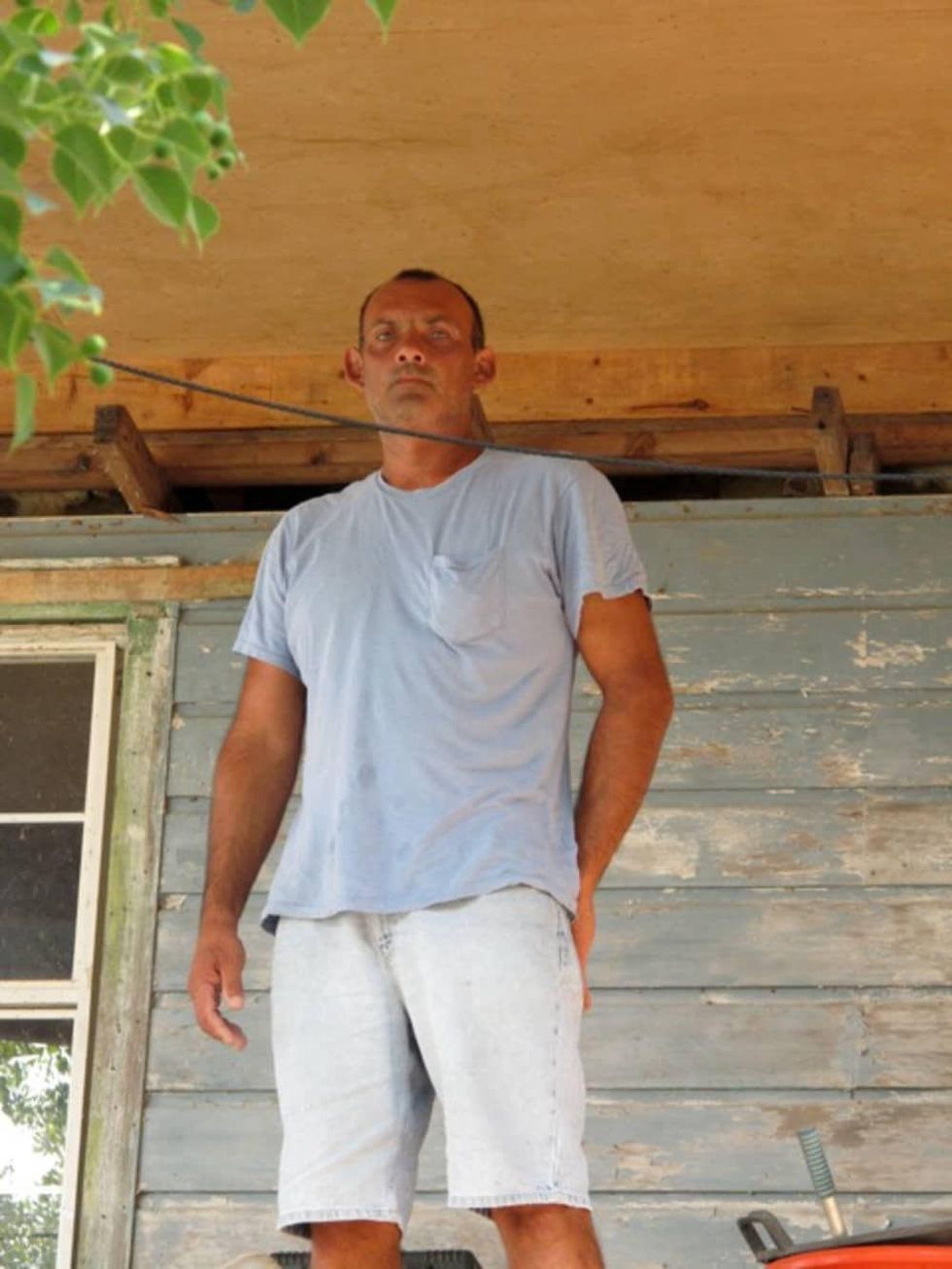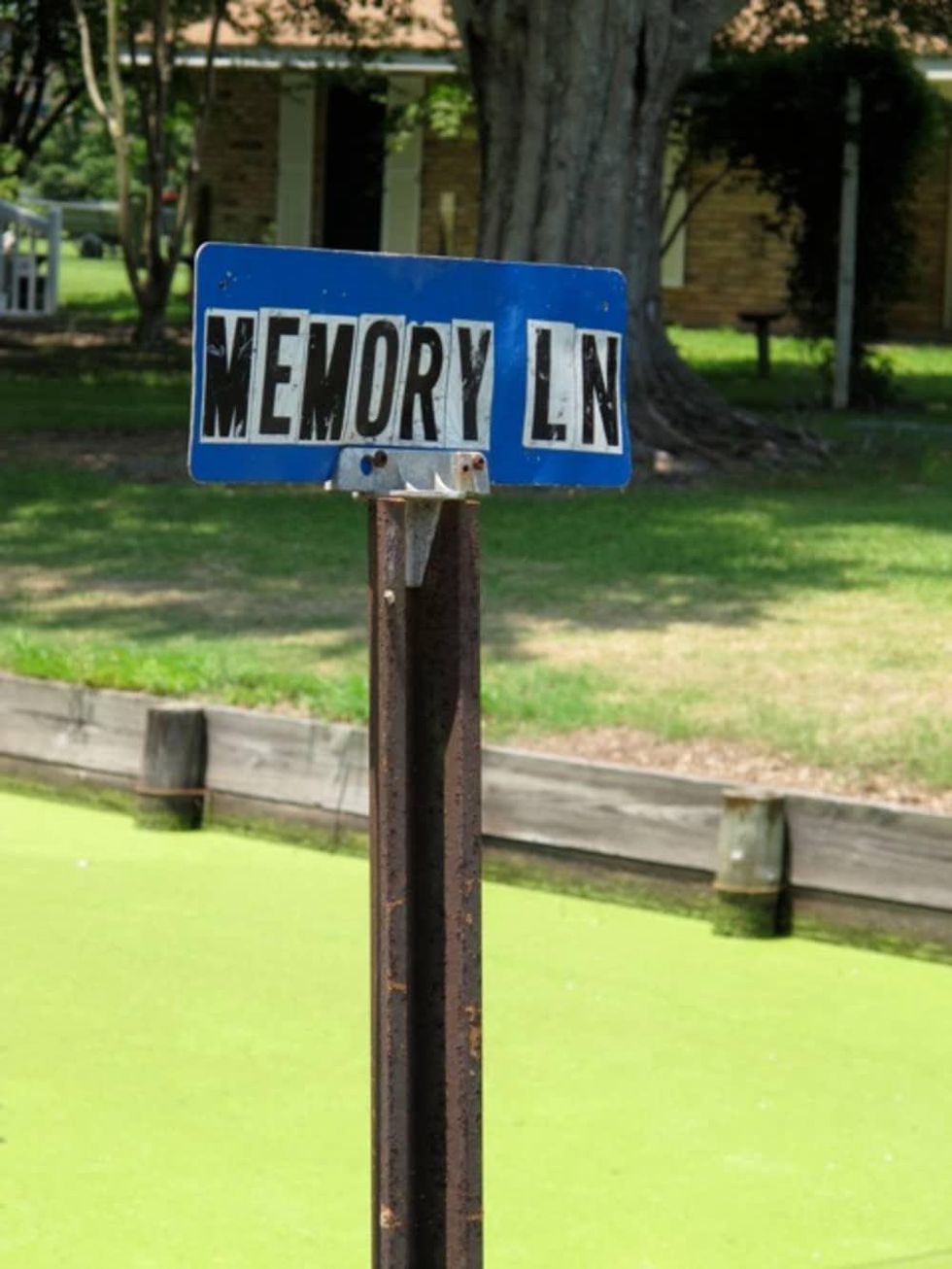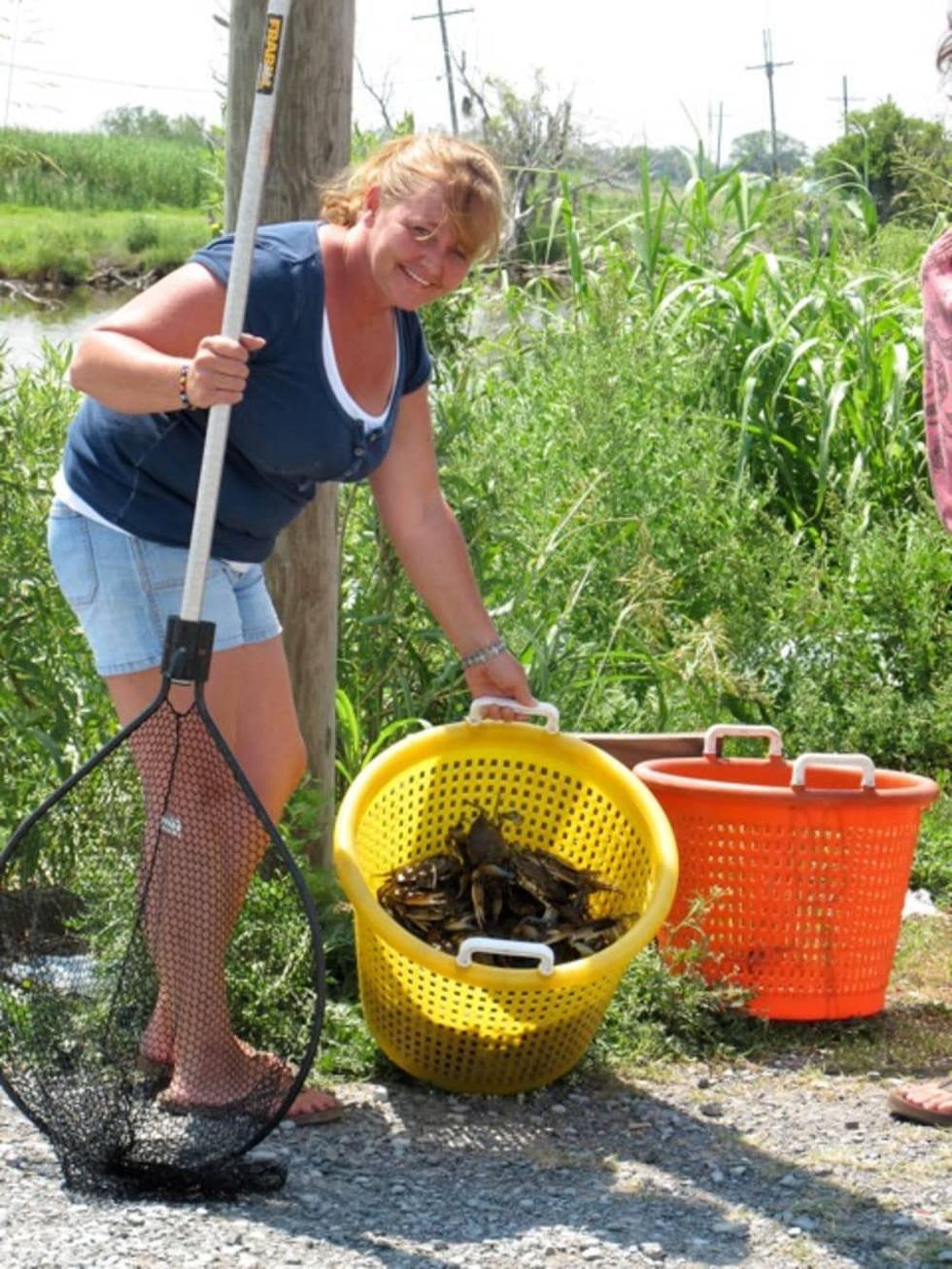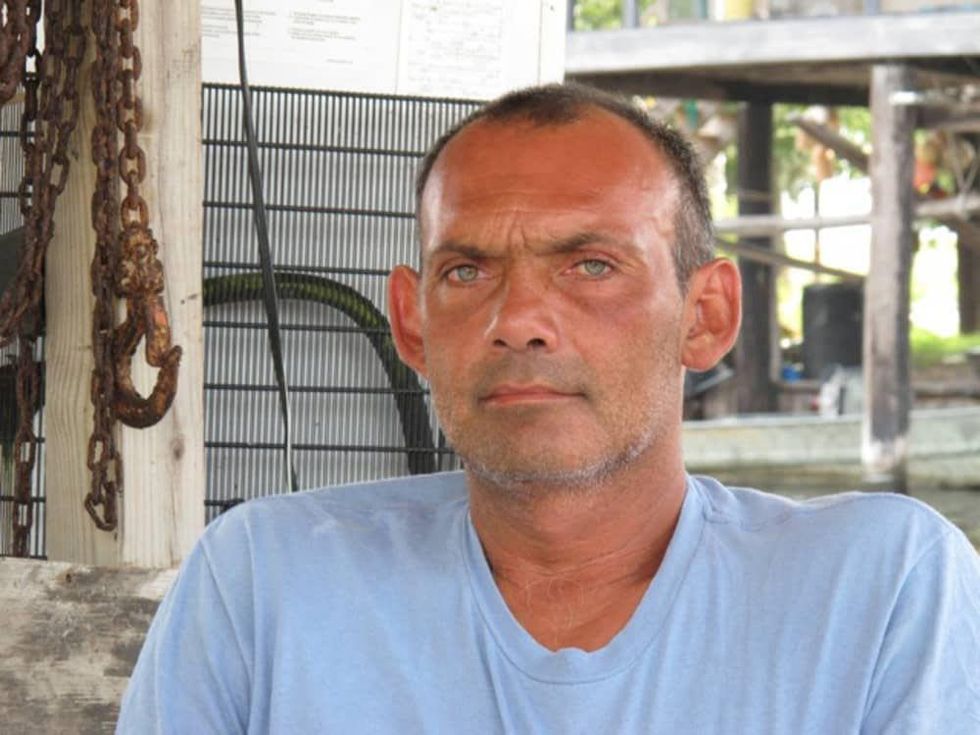Tattered Jeans
At the Gulf's bedside: A Louisiana Indian opens up on the oil damage — and how BP keeps others quiet
In a way, Louisiana reminds me of my schizophrenic brother.
This is not a bash by any means. Louisiana is both mystical and raw in a warm kind of way. Like clothes made of “100% cotton.”
If you look at the state on a map that's especially detailed, it looks like blood vessels running through a body. A living, breathing body, which now in some places has colors of orange, black and some I’ve never seen before — streaming though it. Toxins exacerbated by man-made toxins, also injected by man. Oddly enough, our “mother country,” who, at least to me — rules here.
Initially, I came to Louisiana on a mission related to a photo shoot, but deep down inside, I knew it was just an excuse. Like a loved one turned gravely ill, I had to come see the Gulf. Now, I’m having a hard time leaving her bedside.
In the last few days I’ve traveled (by car and/or boat) from New Orleans to Grand Isle to an area about 35 miles south and west of Houma that, as one person warned, “Now there’s some real coon-asses up in there.”
Maybe so, but the folks I came across — felt like my “tribe” as I like to say. In fact, some do belong to a tribe — the Pointe-Au-Chien. They live along Bayou Pointe-Aux-Chenes, which some know as “Oak Point.”
I’d read an article about Pointe-Aux-Chenes thanks to my friend and writer, Jeannie Ralston. Like the Gulf, the place called to me.
The sky steps in — and cries
I started for there but in Houma, the sky opened up and lightning commenced. This was no downpour, this was a down home, genuine, “gully washer” as my great aunt Lillian Cole calls them, and it went on for a good 30 minutes. Cars (including mine) and trucks pulled over and parked. Lightning not only clapped. It echoed like from in a huge empty warehouse.
What typically looks like long legs dancing struck me as something from the graphics world. I flinched at every thick white line that speared the earth and then lingered there, quivering.
When it was over, I headed back out but the street was flooded. I tried another route but that street was flooded too. Again I pulled over. Ten minutes later, the roads were still impassable and I was laughing, remembering something a New Orleanian had told me, “There’s nothin’ good in Houma.” “Not the drainage anyway,” I thought.
The next morning, I set out for Pointe-Aux-Chenes again. It was Sunday, a day declared as “A day of prayer in Louisiana.” It was cloudless with a heat index of 115, the radio said. It also said that various businesses were down “30 percent to 50 percent” and that there “not enough skimmers, booms, and workers.”
During one commercial break I heard another radio announcer. “Give me three hours,” he declared, “10 to 1 weekdays. All that we are … are at stake.”
I passed produce stands stocked with “Washington Parish Watermelons” and “Louisiana Creole Tomatoes” and felt a magnetic pull kick in, but the Pointe Aux-Chenes magnet pulled stronger. Through Bayou Blue and a little town called Bourg, where a bayou ran along beside it like a bosom buddy. Past everything green — cypress, pines, oak, banana trees, huge magnolias until finally the road turned and narrowed even more.
I stopped at a little bridge where two women were fishing. Rhonda Dupre and Cheryl LeBoeuf were “crabbin’,” they said. “We’re cookin’ our husband’s Father’s Day Supper …before the oil comes,” they laughed. I was taken by their good humor and lightheartedness. “You’re heading the right way,” they pointed and a little further up, the sign confirmed.
Bienvenu
Pointe-Au-Chien Indian
TRIBE COMMUNITY
Inside a community in pain
I crossed a steep narrow bridge over the bayou and drove as slowly as possible so I could take it all in. The silence wasn’t sad, like an abandoned house. It was still and respectful — like the storm-ridden oaks, looking as if they’d been power washed, but still standing with apparent strength and a gorgeous color gray.
I hadn’t driven far when I spotted a man in a Caribbean blue T-shirt sitting in the shade. Little did I know, I was to enjoy the next few hours like I would reading a good book. No drama. All mystery.
Russell Dardar Sr. (43 years old) is one of 15 children and now lives in the house his grandfather built. He carries a tribal identification card that lists him as tribal member No. 187.
From the surrounding oaks, moss hangs like perfectly placed tinsel on a Christmas tree. Russell pointed to the other houses in one long line, “that’s my aunt, that’s my cousin, that’s my brother, my Mama, that empty lot is another aunt, the next house is my wife’s uncle … you could go on and on and on.”
I was white enough to ask him if I could take his picture and then, ask him for a smile! His answer came so honest and easy like. “It’s not quite a smiling time,” Russell said. We both teared up.
I shut my camera off and put it down, feeling ashamed and utterly thoughtless. I then got some pictures of a lifetime.
“Well, some people may think the name means point of oaks but to us, Pointe-Aux-Chenes means point of the dog," Russell said. "Years ago ... wild dogs lived here.”
He spoke about how wise his grandfather was to buy all the land. What the land looked like before the waterways were cut. He mused about the old “skiff” (43 feet long and 17 feet at the widest point) now parked alongside his grandfather’s house, how he hopes to clean it up and use it some day. The old sugar refinery that used to be, the cemetery, now gone too … even the “Rhode Island Reds” roaming in his front yard until inevitably — we got to the heavier heartache at hand.
BP's plan?
On May 21, Russell’s cousin caught oil in his fishing net. “It smelled so bad,” Russell said, “I took pictures.”
He brought them from the house for me to view. “That oil sheen doesn’t look like water,” Russell told me and indeed, he was right. The next day when I saw it from a boat, I thought of a slow moving water moccasin.
We were still looking at pictures when Russell’s cousin cruised up to the dock in his boat. He, like many all over the state, is no longer fishing because of the oil. Instead, BP had hired him to take them around. His cousin and one other fellow got off the boat and walked silently by us, one offering half of a hand wave.
“They have a gag order on them,” Russell explained apologetically. “That’s why I didn’t sign up.”
In other words, BP hired his cousin only under the condition that the cousin agreed to sign a piece of paper promising that he would not “talk” to anyone. “I’m gonna talk,” Russell told me.
When it was time for me to leave I searched for something hopeful to say to Russell. “Someday,” I smiled, “I’m gonna take a picture of you in that skiff.” Russell’s answer came soft and quiet like.
“I see myself in that boat too.”




